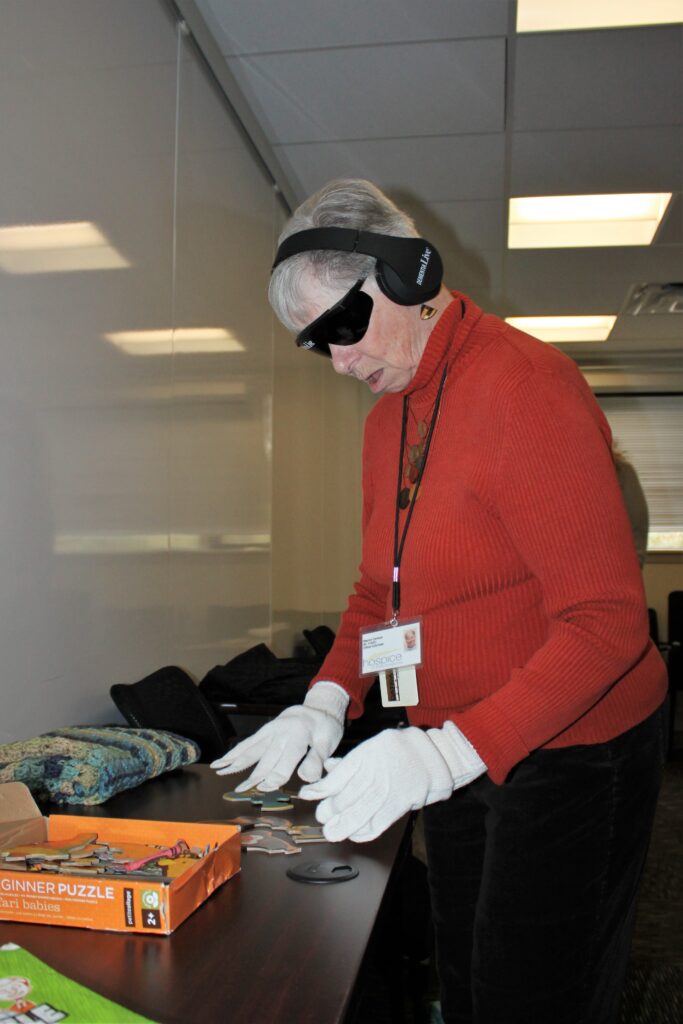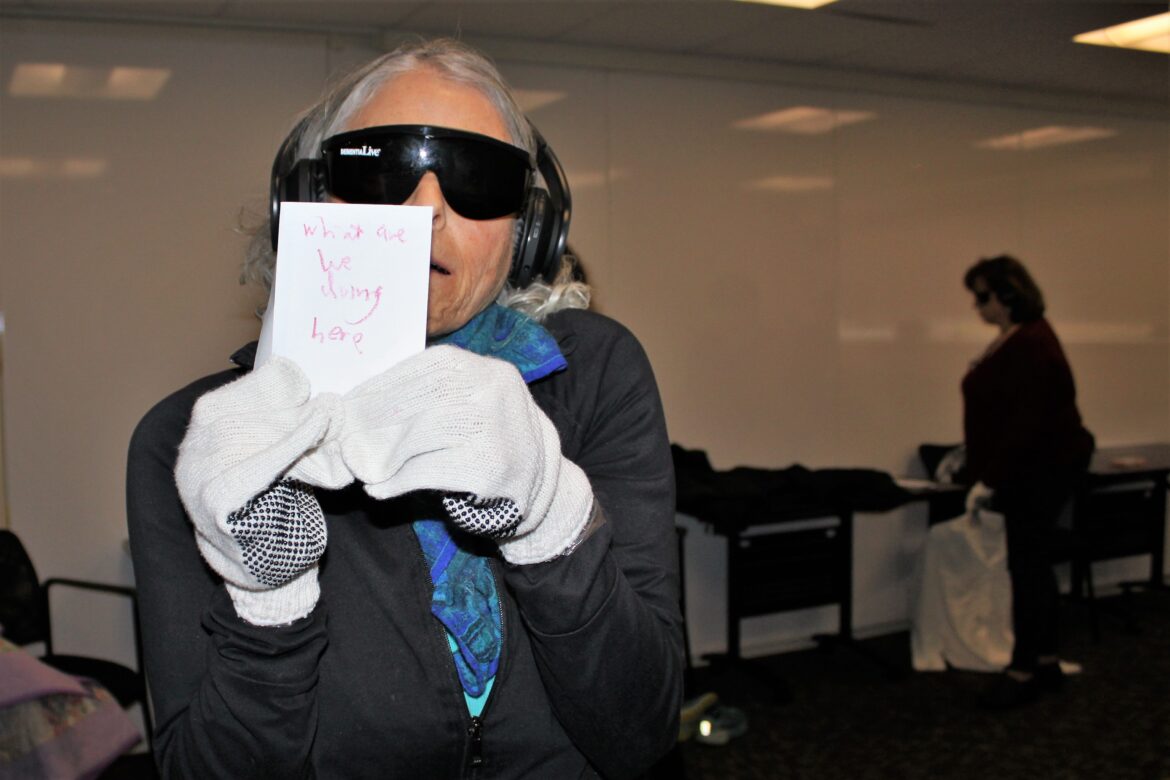
During a Dementia Live training session, a Hospice of the Chesapeake volunteer attempts to assemble a puzzle while wearing dark goggles, oversized gloves and headphones filled with noises.
What is it like to have dementia? To answer the question, Hospice of the Chesapeake healthcare team members, volunteers and caregivers are turning to Dementia Live, a multisensory learning experience. It begins with goggles, a headset and gloves.
Here’s how it starts: You put on dark glasses. Your vision worsens. It’s hard to see faces. Your peripheral vision shrinks — mimicking macular degeneration. The headset you wear crackles with irritating background noise, static and sounds. You can’t distinguish between sounds like a person talking to you, and less important interruptions like someone else’s cell phone. And forget picking up a fork or pushing an elevator button. Your bulky gloves make it hard to use your hands or grasp small items.
Everything you know has changed.
That sense of isolation and confusion are important takeaways of Dementia Live training. Team members, volunteers and caregivers across the organization’s four counties are using the technology, made possible because of donor support. Additionally, healthcare professionals from local senior living communities have access to sessions so they can help patients in their care. The idea is to break down barriers in understanding how the disease alters reality.
The time is now to build knowledge. For people between ages 65 and 69, around two in every 100 people have dementia, reports the Alzheimer’s Association. A person’s risk increases with age, doubling every five years. For people ages 90 years and older, about one-third have dementia.
Maryland expects an 18 percent increase in the number of people ages 65 and older with Alzheimer’s disease and related dementias by 2025. “Dementia touches all of us,” Karen Frank, director, The John & Cathy Belcher Institute said. Preparing for inevitable increases in disease rates drives the institute’s dementia care efforts.
“With 10,000 people a day turning 65, dementia is going to be around for a long time,” Frank said. “The goal is to share how early supportive and coordinated care can make a difference for patients and loved ones.”
Know someone with dementia? Chesapeake Supportive Care can help. Reach out to support@chesapeakesupportivecare.org or 443-837-3376.

During a Dementia Live training session, a Hospice of the Chesapeake volunteer was so overwhelmed by the simulated confusion that she wrote a note to the trainers that read, “What are we doing here.”


